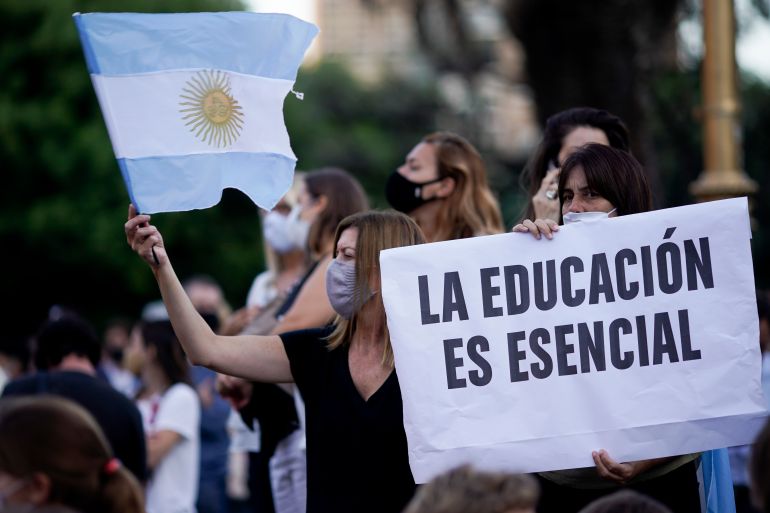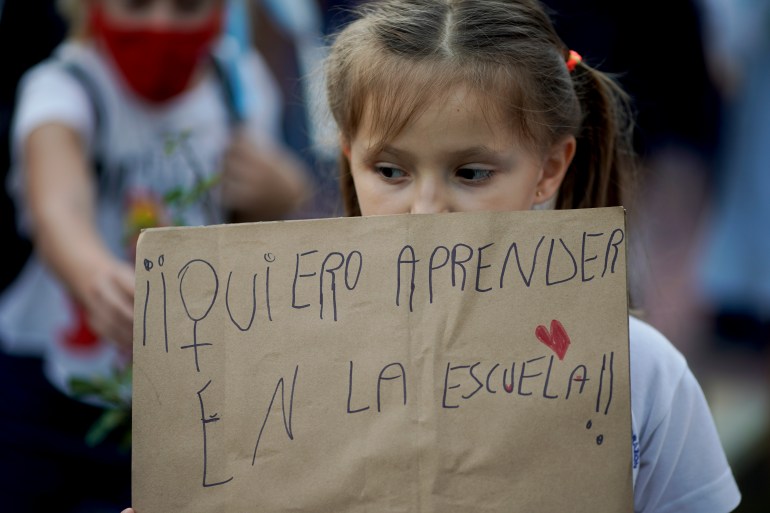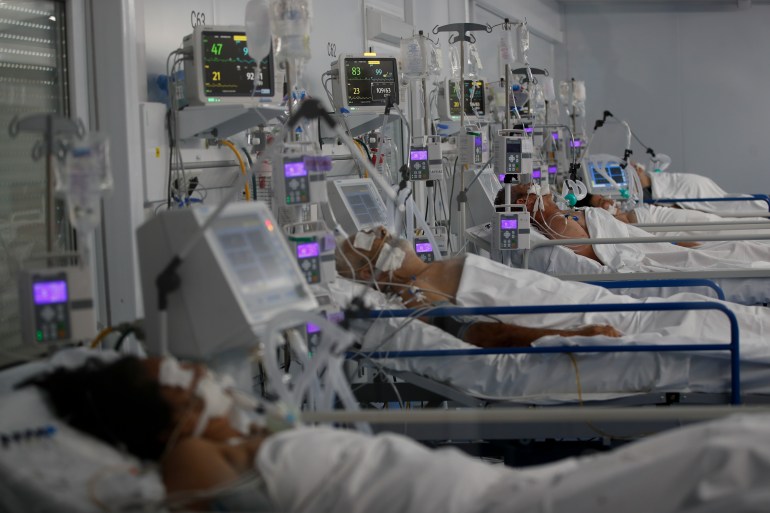Argentina Supreme Court overrules president’s closure of schools
Judges reverse President Alberto Fernandez’s decree to close schools in Buenos Aires amid a surge in COVID-19 cases.

Argentina’s Supreme Court has overturned President Alberto Fernandez’s decree to close schools in Buenos Aires amid a surge in coronavirus cases, siding with the city government that had sought to keep children in class.
The Supreme Court ruled on Tuesday that the presidential decree constituted a violation of the legally enshrined autonomy of Buenos Aires, which it ruled was the authority in charge of deciding whether schools should close.
Keep reading
list of 3 itemsRage boils over amid Argentina’s unrelenting femicide crisis
Argentina sees steep climb in poverty due to coronavirus
Four out of the five judges ruled that Fernandez’s decree in April violated the capital’s autonomy. The fifth judge abstained, saying the issue was beyond the court’s jurisdiction.
“The City of Buenos Aires and its provinces can manage the opening of classes … prioritising the opening and resumption of in-person classes,” the court said in its decision.

Fernandez had ordered schools in and around the capital to temporarily close amid a surging second wave of COVID-19 cases and deaths. He also ordered other public health restrictions, such as nighttime curfews.
But the closure of schools drew the most opposition.
Fernandez had initially ordered the schools to stay closed until the end of April but on Friday he extended the decree to May 21.
Argentines took to the streets in protest last month against the restrictions.
The city government in Buenos Aires, which mounted the legal challenge to the Supreme Court, has kept elementary schools and kindergartens open while mandating hybrid in-person and virtual classes at the high-school level.
Mayor Horacio Rodriguez Larreta, an opposition party member, had argued there was little evidence that in-person classes increased infection rates.
The federal government said it wanted to reduce circulation to stem the spread of the virus.

Argentina has reported more than three million confirmed cases of the coronavirus and almost 65,000 deaths, according to Johns Hopkins University data.
Intensive care wards have been filling up amid the second wave, with more than 80 percent of beds occupied in Buenos Aires.
The country’s economy, already in recession before the pandemic hit, has also worsened, stoking poverty levels.